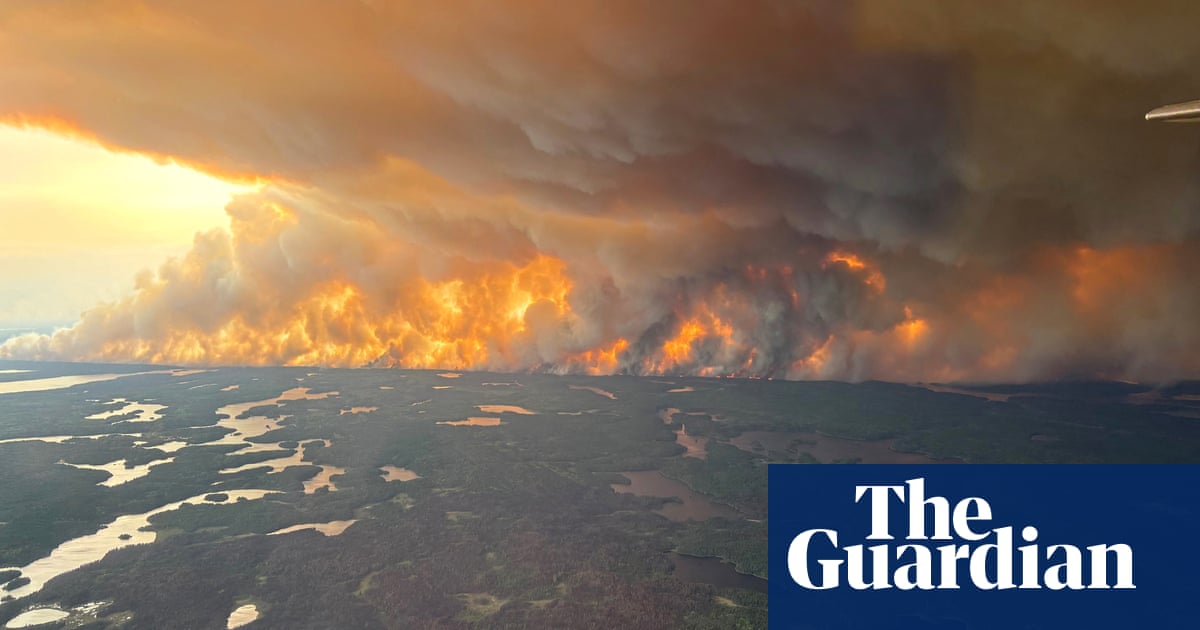More than 17,000 people inCanada’swestern Manitoba province were being evacuated on Wednesday as the region experienced its worst start to the wildfire season in years.
“The Manitoba government has declared a province-wide state of emergency due to the wildfire situation,” Manitoba’s premier, Wab Kinew, told a news conference. “This is the largest evacuation Manitoba will have seen in most people’s living memory.”
Kinew said he had asked the prime minister, Mark Carney, to send in the Canadian military to help with the evacuations and firefighting.
Military aircraft, Kinew said, would be deployed “imminently” to help move people out of endangered remote northern communities to safety, along with additional firefighting resources.
Theclimate crisishas made wildfires in Canada more frequent and intense. The country has been hit with devastating fires in recent years, including in 2023, themost destructive on record.
There are now 134 active fires acrossCanada, including in British Columbia, Alberta, Saskatchewan, Manitoba and Ontario. Half are considered out of control.
The evacuations include the town of Flin Flon, where 5,000 residents were told earlier to get ready to flee on a moment’s notice as a major wildfire bore down on the mining town, which is named after a fictional character in a 1905 paperback novel.
Residents of several other remote towns and Indigenous communities have also now been told to leave.
Most of the evacuees are expected to be transported to the Manitoba capital of Winnipeg.
Evacuee Sheryl Matheson said the wildfires had surrounded her small town of Sherridon, northeast of Flin Flon.
“It’s been overwhelming,” said the owner of a fishing lodge. “It was very smokey. You could see the fires four or 5km away and moving fast.”
She added, “The flames were shooting over 121ft high and firefighters couldn’t get close enough to the fire to do anything.”
Elsaida Alerta told public broadcaster CBC she was having “major anxiety” as she and her family readied to leave Flin Flon, where she has lived for three years.
“Especially for somebody that lived in a big city [previously], that never had to evacuate, this is definitely nerve-racking,” she said.
The only highway out of Flin Flon still open was jammed with traffic and local stations had run out of petrol, she said.
“We basically gathered all our essential things, important documents, medications and, you know, things that our animals will need,” she said. “We’re just gonna make our way and hope for the best.”
Premier Kinew said the widespread nature of the fires was cause for alarm.
“For the first time, it’s not a fire in one region, we have fires in every region. That is a sign of a changing climate that we are going to have to adapt to,” Kinew said.
Twenty-two wildfires were active in the province.
Nearly 200,000 hectares of forests have been scorched in just the past month, or triple the annual average over the previous five years, Kirstin Hayward of the Manitoba wildfire service said.
“Manitoba has the highest fire activity in Canada so far this year, due in part to a prolonged period of warm and dry conditions,” she said.
About 1,000 residents of Lynn Lake and Marcel Colomb First Nation in Manitoba and 4,000 people from the northern village of Pelican Narrows and other communities in neighboring Saskatchewan had already been evacuated earlier in the week.
A firefighter was also severely injured when he was struck by a falling tree while battling blazes. He was being treated in hospital, Kinew said.
The Manitoba premier said emergency shelters were being set up and companies and communities across the province were being asked to “open your doors” to displaced residents.
Earlier this month, two residents of the small community of Lac du Bonnet died after being trapped in a major wildfire northeast of Winnipeg.
